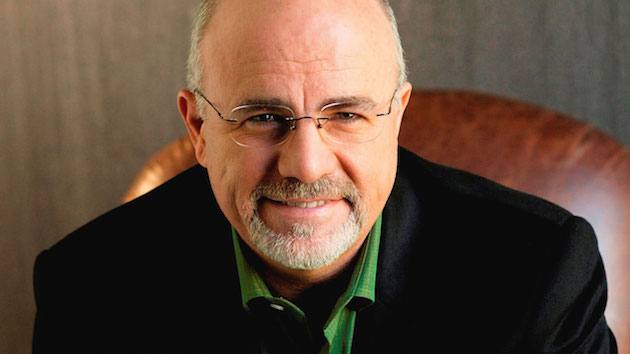Dave Says – This lady’s getting it done!

Need some financial advice? Debt and income crisis? Pay off the house mortgage first? Check cashing? Taxes? Credit Cards? Check out what folks are asking Dave Ramsey.
This lady’s getting it done!
Dear Dave,
I’m single, and I’ll be a pilot in the military for the next 10 years. I’m also debt-free, have a fully funded emergency fund, and I’m saving 15% of my income for retirement. After my military days are over, I plan to work as a commercial pilot. I’ve done the math, and I have about $20,000 a year to give, have fun with and build wealth. My question is about wealth building. When it comes to rental properties, I know you don’t like the idea of a long-distance landlord. Being in the military, there’s a good chance I’ll move around a bit. What should I do?
Rachel
Dear Rachel,
First, thank you for your service to our country. And, wow! You’re in a tremendous position financially and career-wise. You’ve got a great future ahead of you as a pilot in the military and after, plus you’ve followed my plan item by item. You’ve got so many options, and you can make a difference in your community and in the lives around you right now by giving.
When it comes to wealth building, I hope you’ve already taken advantage of the TSP, or Thrift Savings Plan, which is kind of the military version of the 401(k). For wealth building beyond that, I’d get with a good investment pro—one with the heart of a teacher—and dive into some growth stock mutual funds. You could have a lot of money piled up just by the end of your military career. Who knows? You may even be able to buy a nice home with cash when you leave the service. Beyond that, you may be able to settle into some real estate and pay cash for those investments.
You are one cool, smart lady, Rachel. Congratulations on setting yourself up for a wonderful life—one where you can live and give like no one else!
—Dave
Build wealth in college?
Dear Dave,
What advice do you have for college students who want to plan for the future and start building wealth? I’ll finish my master’s degree in marketing in less than two years, and I’ve been pretty lucky so far because my parents have paid for school. I bring in about $2,200 a month at my job, and I have $24,000 in savings.
Alex
Dear Alex,
If I were you, I’d get really good at the whole marketing thing. At this stage of the game, you are your best investment. You’re a go-getter, so just keep on going and getting it.
If you continue on this path, and by that I mean working, going to school, and piling up cash, you’re going to be able to put that marketing know-how to work in a big way. You’ll be able to use some of the cash you’ve got stored away to set yourself up in your new life. What you’re doing right now, in your situation, will give you a better return mathematically than a mutual fund.
Do you get what I’m saying? An education that is usable is more valuable to you at this stage of the game than investing. Now, when you finish school and start living life in your new career, good growth stock mutual funds are what I’d recommend for retirement. And at that point, if you’ve got an extra $30,000 or $40,000 sitting there, that’s even better.
Great start, Alex. Well done!
—Dave
READ: Dave Says – A very generous offer
Mandatory withdrawal at 72?
Dear Dave,
I’ll be 72 in October, and I have a Roth IRA I haven’t done anything with in a while. I’ve got about $30,000 in it, and I believe I read where the government said there will be a mandatory withdrawal at age 72. If this is true, what should I do with that money?
Danny
Dear Danny,
I’m not positive there are mandatory withdrawals on a Roth IRA. I think that applies to traditional IRAs, but double-check with your investment advisor to make sure.
If it does apply to Roths, I’d take the required minimum distribution and move that amount to other investments. Or, since it’s only $30,000, if you’ve got another nest egg you plan to live on, you could just have some fun with the money.
In any case, talk to your investment professional before taking action. If he has the heart of a teacher and cares about your best interests, he’ll look at your overall financial situation and guide you in making the right decision.
—Dave







